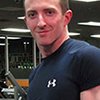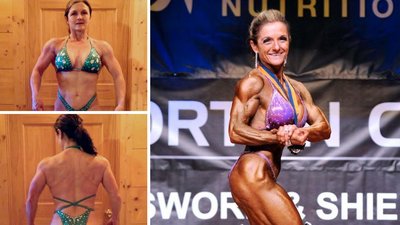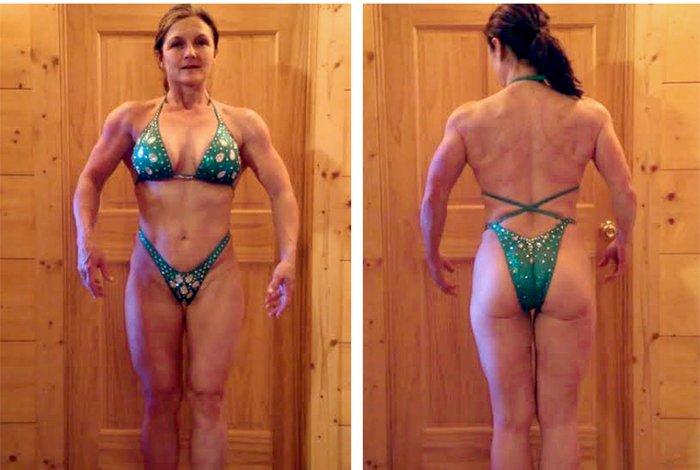
I've been fortunate enough to coach several world champions in physique sports over my career, and for the most part, they all shared one common trait; they each had obvious innate gifts that gave them a clear physical advantage in the world of natural bodybuilding. I could look at each of them and see a world champion lurking just beneath the surface.
All of them except one, that is.
In December 2011, I received a message from a woman named Kerri Bolen who wanted to do a bodybuilding show the following spring. At 44, Kerri had been competing for 22 years, but had won only twice—both at local shows. She was only 5-foot-2, which meant she would likely get dwarfed by her competitors. And as she approached middle age with plenty of show preps under her belt, Kerri's metabolism was clearly headed south.
Did any of this mean that she shouldn't be competing? Definitely not. But as I walked away from our initial meeting, I definitely didn't see Kerri's potential to be a champion on the national or global scale.
I've never been so mistaken.
This valiant competitor not only proved me wrong, she also taught me a lot. And even if you never set foot onstage, these five lessons from Kerri Bolen will help you get the most out of your training.
1. Potential is revealed by hard work
The more I worked with Kerri, the more apparent it became that she had an unparalleled work ethic. Normally, athletes will send you signals when they're reaching their strength or endurance limit. Kerri never gave any such indications. She just wanted to keep pushing.
As she leaned out, I also saw that she had incredibly dense-looking muscle under her body fat, and an abnormally thin-skinned look that carried over well to the stage. You can chalk the first up to decades of consistent weight training. The second was an innate gift that I simply hadn't seen early on, but that became clear once she got deep into prep. I wasn't surprised when she was named unanimous overall winner at the spring show, earning her pro card.
The lesson for you: There's no substitute for a muscular base developed by year after year of quality training. Over those years, you'll also develop mental skills that carry over to ambitious goals like competition.
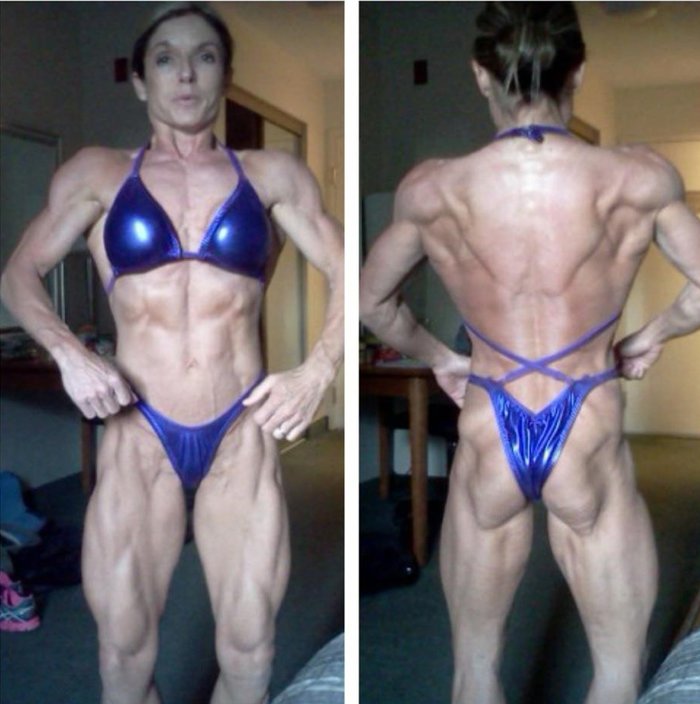
2. Elite deadline-driven goals are no joke
Next on Kerri's agenda was her pro debut, eight weeks away. We knew she'd have to get even leaner to compete at this level, so we dropped her calories down further and added two daily 40-minute cardio sessions. A lot of people would have balked at this kind of intensity. Not Kerri. She lost 21 pounds, competed at 105 pounds, and placed second behind the current world champion.
Probably most thrilling to Kerri was the fact that she was a huge hit with show spectators. It seemed like everyone wanted to take a picture with her and get her autograph. "Gosh," she whispered as we left the venue, "I can't believe everyone's making such a fuss over my muscles."
The lesson for you: Competing definitely isn't for everyone. But if you've done the work long enough, you can surprise yourself—even well into your 40s.
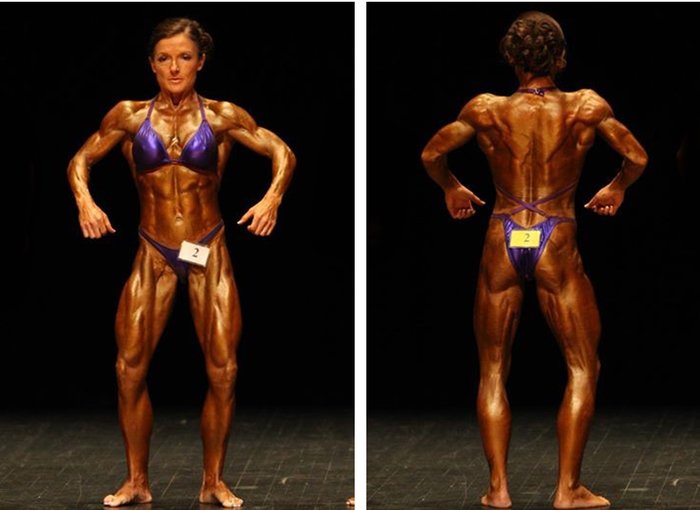
3. Your trajectory can change in an instant
Stoked by her success, Kerri was ready to prep for the world finals a month away—until a sudden low-back injury and sciatic pain put an end to her contest season.
She could have "worked through the pain" and suffered all year. She could have been satisfied with her already-surprising success and stopped there. But instead, she spent the rest of 2013 recovering, slowly adding muscle mass, and focusing her energy on getting stronger for 2014.
But as 2014 neared, Kerri now found herself battling a new injury, this time in her shoulder. She also began dealing with perimenopause issues that made it hard for her to lose weight. Amid all this turmoil, Kerri's father passed away. It was not an easy call, but we decided to scrap the 2014 season, too. Kerri needed time to recover both physically and emotionally.
The lesson for you: There's a time to push through, and a time to pull back. When you know the difference, you can save yourself a lot of pain and disappointment.
4. Take the long view
As the 2015 season began, we had about 34 weeks until her first show, the St. Louis Pro Masters Cup, and 52 weeks until the world championships. For many competitors, this would be an insanely long prep time. Kerri took it all in stride.
Knowing that she didn't lose fat as easily as she once had, we began her training with carb cycling: high-carb days of 140 carbs, moderate days of 110 grams, and low-carb days of 75 grams. Within a few weeks, she was doing low-intensity cardio seven days a week, then began HIIT and MISS sessions again.
Eight weeks out, we hit a wall: Kerri stopped losing weight. Undeterred, she decided to lower her carbs still further and do even more cardio. At her absolute lowest, Kerri was down to a ridiculous number of calories and two 50-minute cardio sessions a day. Like a champion, she gave me constant feedback on her energy and hunger. But she never complained.
By the day of the St. Louis show in early July 2015, Kerri was a full 2 pounds heavier than she had been at her pro debut three years earlier. This added musculature showed very well on her small physique and pushed Kerri past the competition to her first professional title.
The lessons for you: By keeping up her training even when not competing for two years, Kerri set herself up for success once she eyed the stage again. And her constant dialog with me about her energy and hunger was undeniable. If you're cutting hard and have access to a coach, don't suffer in silence!
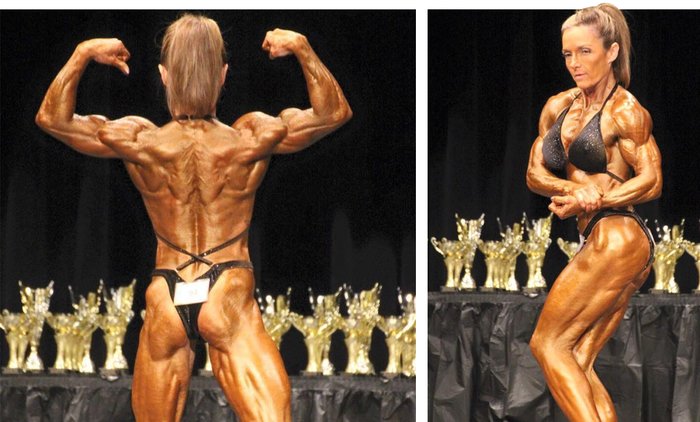
5. Injuries don't have to end the story
Elated after her St. Louis success, Kerri set her sights on the 2015 World Championships. Yet again, reality intervened, this time in the form of a complete tearing of her supraspinatus. An injury had already taken her out of the world championships three years earlier. There was no way she would miss this one.
Since we couldn't use low reps and heavy weights, we did low weights and reps in the 20-40 rep range with a strict "if it hurts, don't do it" policy. Research has shown that extremely high-rep training taken to absolute failure can build and maintain muscle just as well as heavy, low-rep training. We put this research to the test, to say the least.
As a final obstacle, her shoulder injury meant that Kerri wouldn't be able to bring her arm back far enough to properly execute front- or rear-lat-spread poses on show day. This part was an absolute battle—especially when Kerri went head-to-head with the world champion from two years earlier. When the time came for the lat poses, she brought her hand back behind her, but left it floating a few inches off her waist—hoping the judges wouldn't notice.
What they noticed was Kerri's extraordinary conditioning, which showed well against the other competitors' superior size. And when the judges' votes were tallied, Kerri came out ahead by a single point. After battling through years of both emotional and physical challenges, Kerri was crowned the 2015 World Champion!
The lesson for you: Injuries are awful, but there are ways to work around them if you—and your coach, if you have one—are resourceful. Your work ethic and your willingness to work on the skills that make the real difference matter more than any particular muscle or connective tissue.
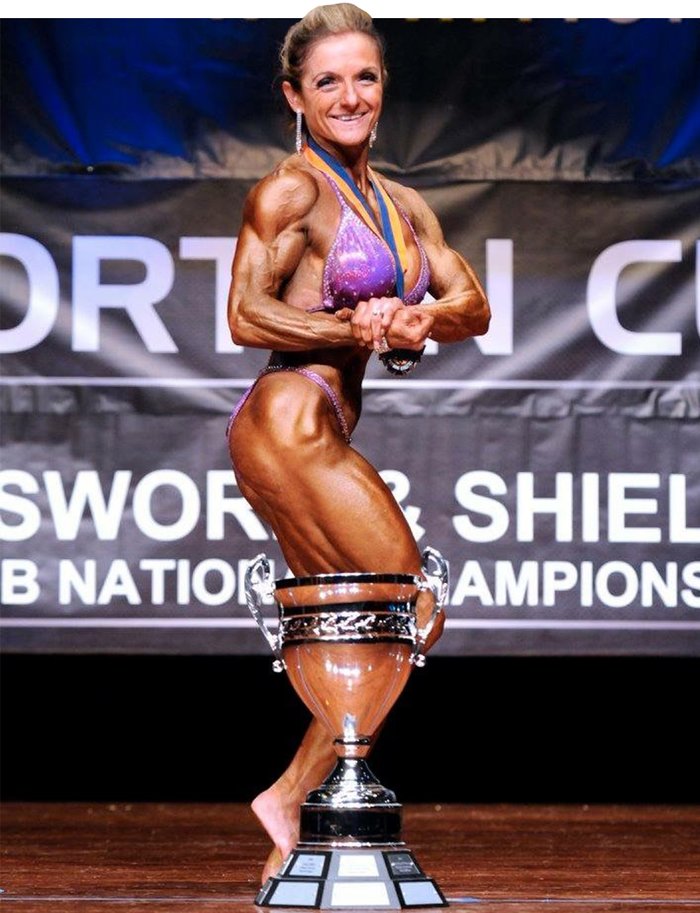
Don't Let Anyone Limit Your Dreams
Kerri learned a lot from her rise to the top. She learned that patience, grit, and sheer effort can often beat an aging metabolism and a small stature. And she learned just how much her body and mind were willing to endure in pursuit of a lofty goal.
My own biggest lesson was that even people who don't appear at first glance to have the natural abilities can climb the platform. I've worked with many gifted bodybuilders in my career. But to this day, none loom as large in my mind as this 5-foot-2, 106-pound bodybuilder who took a 25-year journey to become the most unlikely champion of the world.
